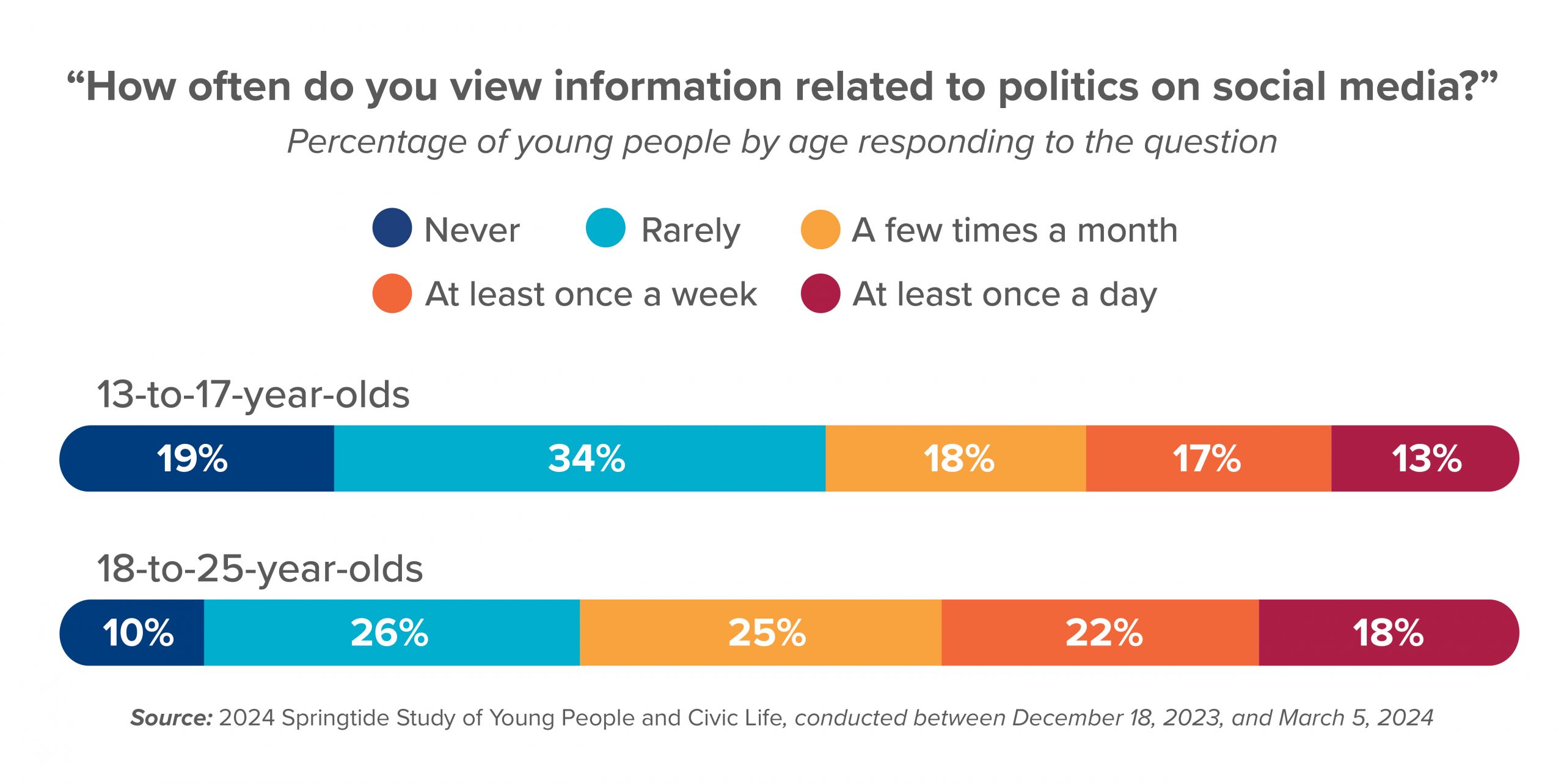
“I saw it on social”: How Digital Life Affects Political Participation
Our newest report, Cultivating Care: How & Why Young People Participate in Civic Life, explores young people’s civic lives in the context of care—how they seek and gain knowledge, detangle complex identities from narrow labels, and engage in dialogue and action in ways that feel safe and productive. This post is the second in a series that showcases our latest findings, many of which are excerpted directly from the report. Read more about Cultivating Care here.
At Springtide, we asked thousands of young Americans ages 13 to 25 what social and political issues they care about, what motivates them to care, and what propels them to action. Their responses show that the process of caring often involves interacting with digital and social media.
Young people often view this type of media as a double-edged sword — sites and apps provide connections with friends and supply news and information, yet the constant flood of content can feel overwhelming and confusing. They claim that this is especially true for political and civic information; the barrage of candidates, claims, and opinions can make it difficult to discern what is true.
Nonetheless, young people say online news coverage and social media bring a level of awareness to political issues and events that often moves them toward care, even if they weren’t originally looking for that type of content. While only about one-third of the young people we surveyed who are on social media (35%) say that they use these platforms as a source for news, most encounter political issues there anyway. Fifty-seven percent report viewing political information on social media at least a few times a month. As compared to those ages 13 to 17, young people ages 18 to 25 are more likely to encounter political content on social media, and they report seeing it more often than those ages 13 to 17.

Yet, some young people say digital sources provide information for two foundational aspects of civic life—learning and developing opinions on political candidates and issues.

Online platforms for civic learning give young people constant and immediate access to information on political issues and candidates, allowing them to become and stay informed. Avery, 21, follows her state senator on TikTok. Jennifer, 19, researches candidates for local elections online: “Usually I’ll search their name, and then I’ll try to, like, go through their campaign website. If I’m not finding enough information, I’ll try to see if there’s any other articles about them.” David, 17, shares that he likes to “follow up on what’s going on” in our country by “follow[ing] unbiased social media, like news-sharing profiles that give me news about stuff that’s happening in the world or in the US.” Marwa, 23, says: “I should be like, ‘Oh, yeah, scholarly sources help [me] make my decisions.’ But social media really helps impact how I see the world.” She says that she follows “a bunch of pages on TikTok where they show the current events or what’s going on every day in the world.” She explains that “she wouldn’t have known” about issues like health care or climate change without learning about these issues online.
At the same time, young people say that they can feel overwhelmed by the information overflow of media. About his online interactions, Atticus,19, shares: “Sometimes I just can’t believe what I see. And that’s what’s really hard. I’m like, ‘Is this even real?’” Daisy, 19, laments that it “feel[s] like the news stations make it hard because everybody’s pushing out what they think is right. You watch one news station [and] they’re saying one thing. You watch another news station [and] they’re saying a completely different thing.”
As a result, many young people seek to verify their learning by comparing various sources. Olivia, 20, shares that if she is scrolling through her social media page and “hear[s] something and it might seem crazy,” she “look[s] into this in a more formal setting,” like more traditional news sources. Olivia “like[s] to check multiple places to see what’s being said, if the same thing is being said, or if it’s being said at all.”
Learn more about how young people engage in civic life in our newest report, Cultivating Care: How & Why Young People Participate in Civic Life.



